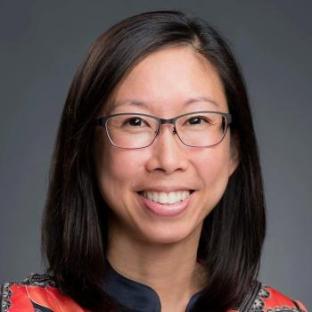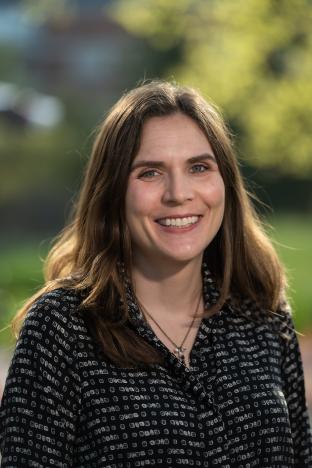Speaker

Karen Chan Osilla, Ph.D.
Dr. Osilla is an Associate Professor in Psychiatry and Behavioral Sciences at Stanford and a licensed clinical psychologist. She conducts health services research with a focus on delivering substance use services to underserved populations using innovative solutions that decrease health access disparities. Dr. Osilla has received funding from the National Institute on Drug Abuse (NIDA), National Institute on Alcohol Abuse and Alcoholism (NIAAA), and the Patient-Centered Outcomes Research Institute (PCORI) and has published over 100 publications on this work. Dr. Osilla has been conducting addictions research since 2006 and has been involved in over a dozen clinical trials evaluating cognitive behavioral therapy, collaborative care, and motivational interviewing interventions (web and in-person) for mental health and substance use disorders among youth, adult, military, family members, and other hard-to-reach populations.
Currently, Dr. Osilla leads a large clinical trial called INSPIRE (Integrating Support Persons Into REcovery) in collaboration with 17 primary care clinics in California. This project evaluates a counseling program for people who support patients with opioid use disorder (OUD), including family members, spouses, and friends. INSPIRE draws from the Community Reinforcement and Family Training (CRAFT) approach and teaches support people effective ways to help a person with OUD change their behavior. This work is funded by PCORI.
Dr. Osilla is also leading two additional clinical trials funded by the National Institutes of Health. The first is a pilot study to evaluate a brief online program called webCHAT that aims to reduce alcohol and cannabis-impaired driving among adolescents learning to drive. This study partners with two large driver education schools in Michigan and Colorado. The second is a large study to evaluate a brief online program called Partners Connect that recruits military spouses and partners concerned about their service member's drinking and evaluates a web-intervention focused on supporting the military spouse. She is also an Investigator on two collaborative care studies. The first focuses on patients with OUD with co-occurring PTSD and/or depression being seen in primary care clinics in New Mexico, and the second is a multi-site study evaluating collaborative care with patients with OUD in the hospital. She is also an Investigator on a clinical trial evaluating an online social network intervention for young adults experiencing homelessness and substance misuse. On these projects, Dr. Osilla leads the intervention development and adaptation activities including qualitative interviews with stakeholders, facilitator training and supervision, and intervention fidelity monitoring.
Dr. Osilla teaches substance use disorder treatment (CLIN 711) in the PGSP-Stanford PsyD Consortium, motivational interviewing to the fellows in the Addiction Medicine clinic, and provides clinical supervision to psychology postdoctoral fellows. Dr. Osilla also serves as chair on several PsyD students' dissertations. She is passionate about disseminating evidence based practices and trains across the country on cognitive behavioral therapy and motivational interviewing approaches to prevent and reduce the harms associated with substance use. She serves as Division 50's Advocacy Partner of the American Psychological Association (APA) connecting its members to APA's Advocacy staff on issues being considered in legislation, policy proposals, and other public interest forums. She also served on NIH's Interventions to Prevent and Treat Addictions scientific review committee for four years and has served on other NIH study section committees since 2013. Prior to joining Stanford, she conducted research at the RAND Corporation for 15 years. She maintains an Adjunct Behavioral Scientist appointment at RAND.
Host




